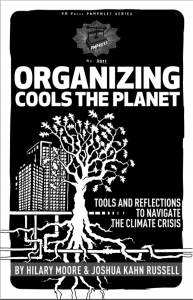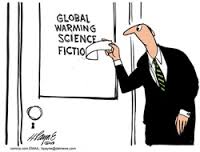There is always a choice. Right now it is an incredibly important choice; the shift away from a the self-destructive habits that have been formed over the years of our development in order to preserve our global society. The petroleum-based ways of life we have come to know so well has reached a precipice. The planet’s atmosphere is filling with greenhouse gasses at an alarming rate; gasses that the industrialized world are mostly responsible for. That means me,, that means President Obama, that means Aunt Alice in Ithaca. We need to change the way we as a global society operate. For too long have we dumped our waste into the atmosphere. Part of this was due to ignorance. However, as of late, it has been due to inaction.
Naomi Oreskes and Erik Conway’s Merchants of Doubt explains how several scientists in combination with several think tanks have been able to warp truth and distort facts since the mid-20th century. From tobacco smoke and its link to cancer to the denial of global warming, no chance has been missed by these “merchants” to benefit from regulatory inaction and the misdirection of the public. The authors explain that the merchandising of scientific doubt was seen around the 1970s when scientists began to find links between tobacco smoke and higher rates of cancer. Sensing a possible hit to their revenue, the large tobacco firms began to work together, looking for a way to ensure that no such link was ever seen by the public. They found their answer in a few willing scientists who, through some questionable decisions, were able to temporarily keep the public from completing understanding the dangers of tobacco smokes. It is obvious now that what they did was in vain, as the Surgeon General’s warning is very obviously placed on all tobacco products.
Now these groups are turning to climate change denial. The George C. Marshall Institute, an essential part of keeping alive the possibility of Reagan’s Strategic Defense Initiative, found a fresh voice in the climate change discussion. Scientists working within the institute wrote a report that essentially pointed to the sun’s increased solar output as the culprit of a warming Earth. It is also now known that they were wrong. There is now a consensus within the scientific community that anthropogenic greenhouse gases are causing the enhanced greenhouse effect that is currently being experienced. This consensus may not have existed years ago when the denial began, but scientists knew that the chance of an anthropogenic climatic shift was possible. The Marshall Institute was criticized heavily for the report, but they made their way through and the denial still exists today.
Why do this though? Why deny facts and push doubt unto the public? Personal agendas are partly to blame. The scientists at the heart of the doubt-mongering reports- Fred Seitz, Fred Singer, Bill Nierenberg, and Robert Jastrow- were anti-communist and therefore willing to do anything to keep government powers to a minimum, as well as destroy environmentalist who were seen as potential “cousins” to the communists. The think tanks that funded the research received their funding from massive corporations in the concerned industries. These agendas have led policy astray and lended a hand to the inaction experienced today on climate issues. While the debate may still rage on in some corners and inaction still runs rampant, the planet is warming rapidly and everything and everyone is implicated. We have a problem. We know about it. We need to work together to solve it. That starts by agreeing on reality.



